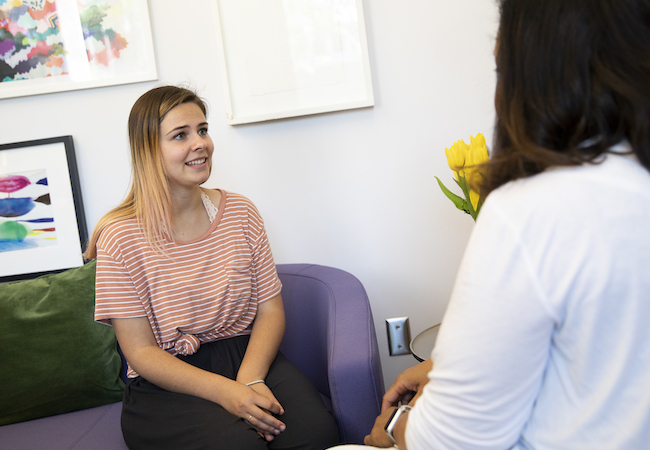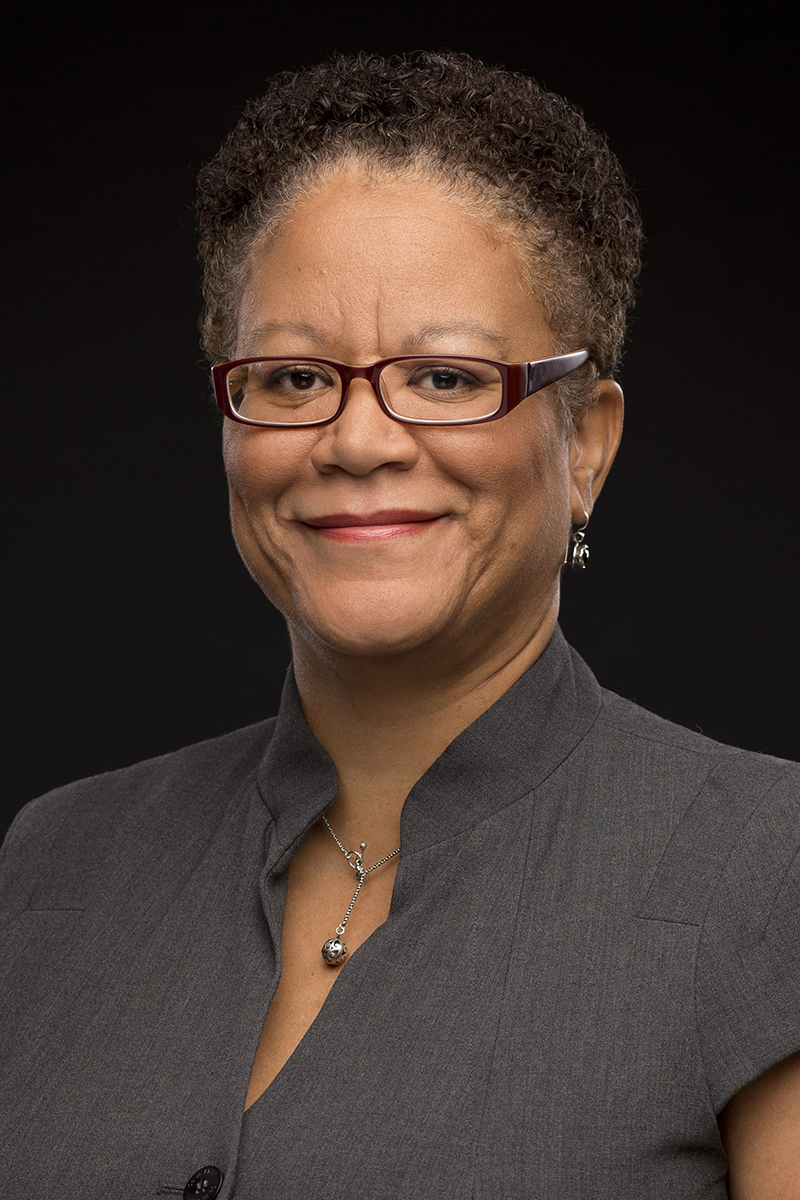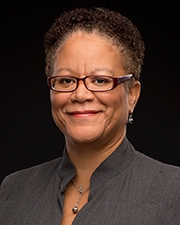How parents can help adolescents struggling with anxiety
November 8, 2019
High school is stressful. With frequent essays, exams, and projects, combined with sports and clubs—and the specter of college applications always looming—our teens are facing a lot of pressure.
Stress is normal—it stems from caring about what we do. But when your child’s stress reaches a degree that disrupts their normal functioning, they could be exhibiting signs of anxiety: fear of future situations disproportionate to the situations themselves. When feeling anxious, teens may try to avoid certain situations. They might have difficulty concentrating, sleeping, and maintaining friendships.
It can be hard for parents to know how to help a child struggling with anxiety. Penn GSE’s Marsha Richardson, a clinical psychologist by training, offers a place to start.

“Listen without judgment, or advice”
When our children tell us something is wrong, we often take action: we question, we advise, we offer to call school. We want to help!
“Slow down,” says Dr. Richardson. “Communicate your willingness to help”—which is not the same as launching into suggestions.
Parents should first give their kids space to talk—and actively listen as they do. If you do ask questions, try to make them open-ended. Instead of asking, “Have you tried …,” probe, “What have you tried so far?”
Also resist the temptation to quickly reassure. When we tell kids, “Don’t worry, it will be fine,” they are not soothed; rather, they feel their worries have been dismissed. If the problem seems small to us, but large to them, we serve them best by meeting them where they are.
“Healthy habits make a difference”
When we are tired, we are less resilient to stressors. Moreover, studies have shown sleep loss can trigger areas of our brain associated with anxiety. More sleep can make teens’ brains and bodies better able to manage—and even stave off—anxiety. Screens have been found to trick the brain into not feeling tired. Setting limits around phone and television use can go a long way toward promoting better sleep habits.
Healthy eating can also alleviate anxiety. Caffeine, sugary drinks, and candy give the body a jolt of energy that, afterward, can leave us feeling even lower. Eggs, fish, meats, fruits, and vegetables give our body protein and vitamins that provide steady energy, and are linked to improved moods. Staying hydrated also combats stress.
“Assist with time management”
Want more advice on issues facing families?
Click here to subscribe to the Educator's Playbook for Parents newsletter
Anxiety is often driven by a fear of failure; students wonder, “How will I get it all done?” Helping teens manage their time can address this worry. Find out what big assignments they have in the next month, and help them plot out time to prepare for each—which will help them avoid the increased stress of working or studying last-minute.
“Keep calm at home”
When teens feel anxious, they cannot escape their worrying thoughts—crowding out schoolwork and social plans. Mindfulness and meditation can help people become more aware of troublesome thoughts and create some mental distance from them. Both practices have been linked with lowering anxiety.
Try implementing a daily quiet time—even as short as five minutes—to practice these strategies with your teen. And practicing with your teen is key. Don’t make this another homework assignment for them. There are a number of apps that guide newcomers through simple exercises.
“Talk to school staff”
“Include your village,” Dr. Richardson stresses. If your child is struggling, counselors and teachers can be great resources. Find out what they are noticing while your child is in school; their insights can give you a fuller picture of the issue. Teens can also be great actors, not wanting teachers and peers to see them as weak—in which case school staff may not be aware they are having difficulty.
Teachers may be able to offer academic help that can alleviate causes of your child’s anxiety, and counselors can offer additional support and resources—to you and your child.
“Reach out for help”
More than anything, Dr. Richardson says, “know you are not alone.”
Seeking help does not indicate failure, nor does it mean your child will be labeled. If your child’s anxiety has become a barrier to success, talk to a school counselor or primary care provider about counseling options. “Help won’t tell you what to do,” Dr. Richardson assures—“they will give you options.”


